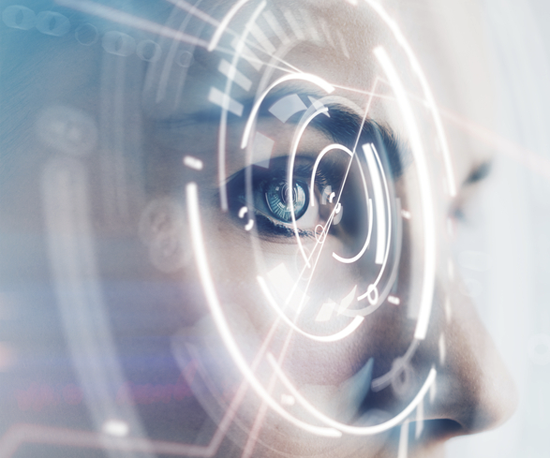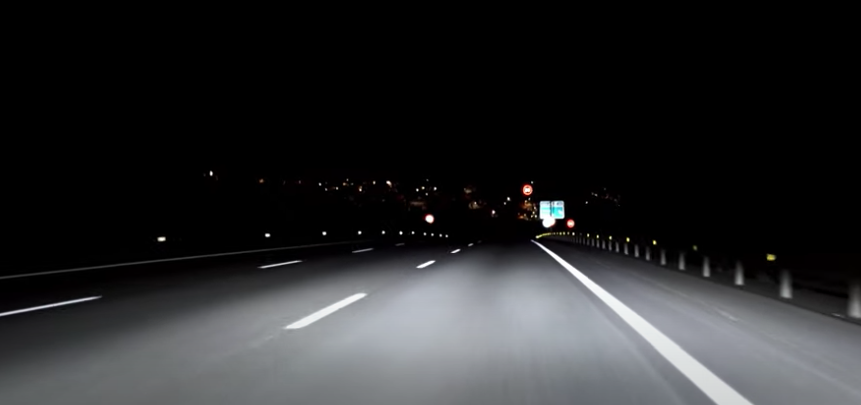Driving at night can be far riskier than driving during the day. This is due to increased road hazards and eye conditions that can affect your ability to see in darker settings. Night driving impacts drivers of all ages and experience. If you ever wondered, “Why can’t I see well when I drive at night?” or “Should I wear special glasses for night driving?” Although the answers will vary depending on the individual, this simple guide will help you understand some particular issues you may have when driving at night and what to do to help.
Vision-related dangers of night driving
Trouble seeing at night while driving is common. Around 50% of UK drivers can struggle to see correctly at night, and the accident fatality rate is substantially greater at night than during the day. One study found that over 60% of vehicle accidents happen at night time due to factors such as visual fatigue and performance, as well as poor visibility and tiredness in general.
Glare from oncoming headlights
One of the most common reasons drivers have trouble seeing while driving at night is light from oncoming traffic. Headlights, high beams, and fog lights are specially designed to help drivers see at night but can also produce adverse effects. Glare can be distracting and irritating and reduce your reaction time, but you can help yourself if glare is a problem. If you wear glasses for driving, one of the best ways to improve night vision is to choose a lens with an anti-glare or anti-reflective (AR) coating. This enhancement can reduce glare from oncoming headlights, street sign reflections and other bothersome lights.
Presbyopia – Difficulty seeing your dashboard
Having trouble seeing your car’s dashboard, centre console, GPS, and other small features could be a sign of presbyopia if you’re over 40. Over 1.8 billion people worldwide have presbyopia, and many of these cases are left untreated. The inability to see close objects can risk your night driving. It can make it more difficult to monitor a safe speed, navigate the directions on your GPS, or even making sure that your lights are working correctly. Presbyopia often affects vision with age, making it difficult to focus on close-up objects. If you are experiencing any signs of blurriness, glasses may be all you need to rectify this problem, so very worth a trip to the opticians.

Myopia – Blurry road signs and distant objects
Short-sightedness, or myopia, is another big risk when driving at night if this is left uncorrected. Myopia will make it difficult to see objects that are far away, such as road signs, debris, cyclists, and pedestrians. Road hazards are much harder to spot at night when visibility and light are limited. More light reflects off of road signs, making them even more challenging to read, other road users are harder to see, including vehicles and pedestrians, and animals are more likely to run out into the road when it’s dark, such as foxes and cats. The inability to see these objects is dangerous for you and everyone else on the road, so you must check your eyes regularly.
Astigmatism – Streaky or blurred lights
Astigmatism means your eye lens is shaped more like a rugby ball than a football, which alters how light is focused. The light can be focused in more than one area of the eye, which can cause blurriness. When it comes to night driving, astigmatism can also impact how you see lights, such as headlights and streetlamps. You are more likely to experience increased glare, halos, or streaks around the lights, which can be challenging and force you to squint to get a better focus. This can worsen at night when more lights come from your dashboard and other cars on the road. Wearing the right glasses can help lessen the effects of this, as they can help to focus the light correctly with the retina. A simple routine eye examination can determine whether you have astigmatism, and prescription lenses can help many.
Nyctalopia – Night blindness
Nyctalopia, or night blindness, refers to having poor vision in dim lights or darkness. Much like presbyopia and myopia, night blindness can pose a very real threat when driving at night because it can limit the visual capabilities of the driver. This disorder can be caused by cataracts, glaucoma, myopia, and other vision conditions. In some cases, glasses can treat night blindness, but treatment ultimately depends on the underlying cause. Driving in darker conditions can be challenging to begin with, and night blindness can make it truly dangerous. If you think you are experiencing symptoms of nyctalopia, glares or halos around lights, trouble to see distant objects, blurry vision, or light sensitivity, it is vital to consult your optician.
Safety tips for driving at night
Vehicle and safety checks should be routinely made every time you get behind the wheel, especially when you intend to drive at night.
- Always pay attention
- Obey the speed limit
- Wear your seatbelt
- Check your tyres
- Never use a mobile phone while driving without a hands-free kit
- Stay bright in reflective gear if outside of the car
- Stop and pull over at your soonest opportunity if you are feeling tired
- Watch out for pedestrians, especially children and animals
Improving your vision for night driving
Many problems that weaken your vision while you drive at night can be treated with corrective glasses or contact lenses. Your vision will also start to change as you age, so regular eye examinations are essential. You may need to update your lens prescription to help you to drive more safely and efficiently at night. If you suspect you have an eyesight issue that directly affects your ability to drive at night, consult your optician as soon as possible.
Reducing reflections and glare at night
Sometimes you can still struggle with reflections on your lenses at night, which can be bothersome and make driving at night an uncomfortable experience. You can fix this by adding a lens coating to your lenses, which can help to remove reflections and reduce glare. Ask your optician for advice.
Where can I buy lenses for driving at night?
Lenses for driving at night can be very beneficial and help solve many vision problems, not to mention helping you feel more confident and comfortable while driving at night. The right lenses for night driving can give you back some independence, which can be life-changing for many. You can find help to guide you to the right pair of lenses for your individual needs. Your optician can provide eye care services with the latest technology and lens types, including varifocals, single-vision lenses, and lens coatings.
Never take a risk with driving and if night driving is becoming more challenging lately, then get some advice from your optician, as now the winter is drawing in, there are more darker hours than light at this time of year. Many will be driving to and from work in the dark, making the whole day much more stressful with poor night vision.

